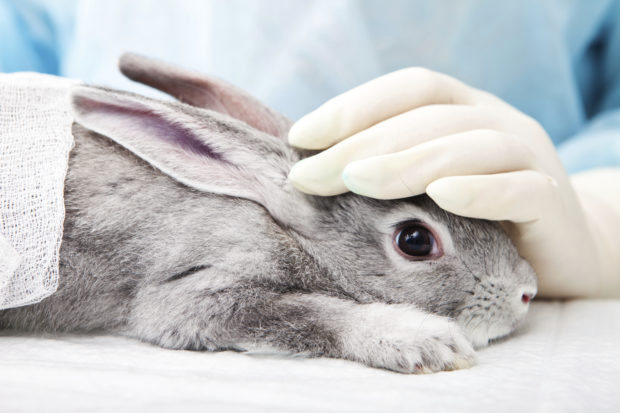
The norm in China has been a requirement that all companies supply a sample of any new product proposed for sale in the country to a government-approved laboratory, which then performs skin and eye irritation tests in rabbits, and possibly other animal tests, to assess the product’s safety. Photo by NiDerLander/iStockphoto
China has, for a long time, been on the sidelines of the global campaign to end animal testing for cosmetics. Animal tests have, in fact, been a legal requirement for many types of cosmetics made and imported into China, and authorities have traditionally required pre-market animal testing before approving any new cosmetic for sale.
But there are now signs that this is beginning to change, and that China has taken decisive steps toward eliminating these archaic requirements.
The norm in China has been a requirement that all companies supply a sample of any new product proposed for sale in the country to a government-approved laboratory, which then performs skin and eye irritation tests in rabbits, and possibly other animal tests, to assess the product’s safety. In 2014, this blanket requirement was lifted for “non-special-use” cosmetics (e.g. lipsticks and skin and hair care products that don’t make a functional claim, such as anti-perspirants, hair-removal products or sunscreens), provided that they were manufactured in mainland China, and that the company could confirm the safety of the product without additional testing.
Last week China’s National Medical Products Association released a first draft of a regulation that would extend this waiver policy to imported non-special-use cosmetics—a move that Humane Society International and the global cosmetics industry have been working to support for years.
Although there are certain specified exceptions, like products designated for infants and children, or those marketed by companies that have recently been penalized for product safety issues, it is a welcome step.
HSI and our network of country offices and regulatory science experts have been at the forefront of the campaign to give the global beauty industry a cruelty-free makeover. We helped establish the European Union as the world’s largest cruelty-free beauty market and we have since championed its spread through HSI affiliates in India, South Korea, Australia, Africa, Brazil and Latin America.
Already 39 countries and territories have passed laws to ban cosmetic animal testing, including India, Taiwan, New Zealand, South Korea, Guatemala and Australia, and all of the member nations of the EU. HSI and its partners played a major role in each of these victories. We are driving similar efforts in Brazil, Canada, Chile, Mexico, the Philippines, South Africa, Sri Lanka and Vietnam.
In the United States, we’ve pursued necessary political reforms through the efforts of the Humane Society of the United States and the Humane Society Legislative Fund. Last year, California became the first state to pass a bill to prohibit the sale of animal-tested cosmetics and it will go into effect on January 1, 2020. HSLF staff members have been working with members of Congress to enact the Humane Cosmetics Act, introduced in the last Congress with bipartisan support and now endorsed by more than 290 stakeholders in the personal care products industry. We expect it will once again be introduced in this Congress.
On the corporate side of the challenge, things are even more encouraging. More than 200 manufacturers worldwide have joined our #BeCrueltyFree initiative, including Lush Cosmetics, H&M, Unilever, Procter & Gamble and Avon. More than 1,000 personal care brands are certified cruelty-free in North America by the Leaping Bunny program, of which the HSUS is a founding organization.
In traditional animal tests, rabbits, mice, rats and guinea pigs have substances forced down their throat, dripped into their eyes, or smeared onto their skin, and are left to suffer for days or weeks without pain relief. Fortunately, cosmetic companies can create new and innovative products the cruelty-free way by choosing from thousands of ingredients that have a history of safe use. For new ingredients, animal tests are increasingly being replaced with non-animal methods that are often quicker, cheaper and more reliable as predictors of toxicity in humans.
Developments in China, given its size and influence, are a promising indication of our progress in moving the world toward an era of no cosmetics testing. It’s a small but significant step that brings the world a little closer to the day when no animal has to die for a lipstick or a shampoo.
The post China takes a step toward joining global cruelty-free cosmetics revolution appeared first on A Humane World.
Enviroshop is maintained by dedicated NetSys Interactive Inc. owners & employees who generously contribute their time to maintenance & editing, web design, custom programming, & website hosting for Enviroshop.
